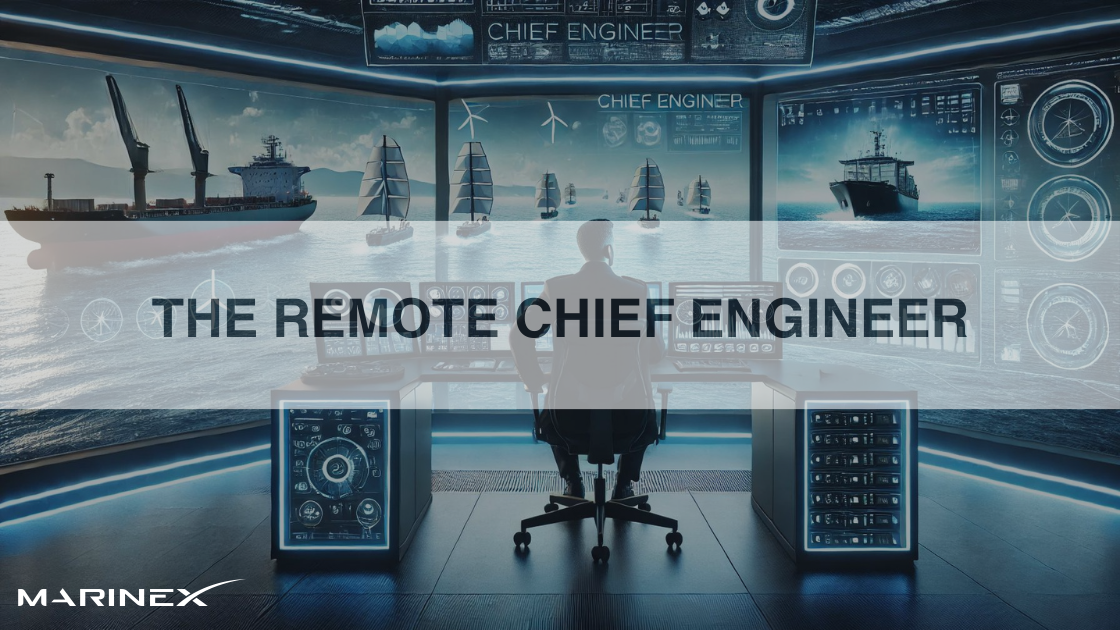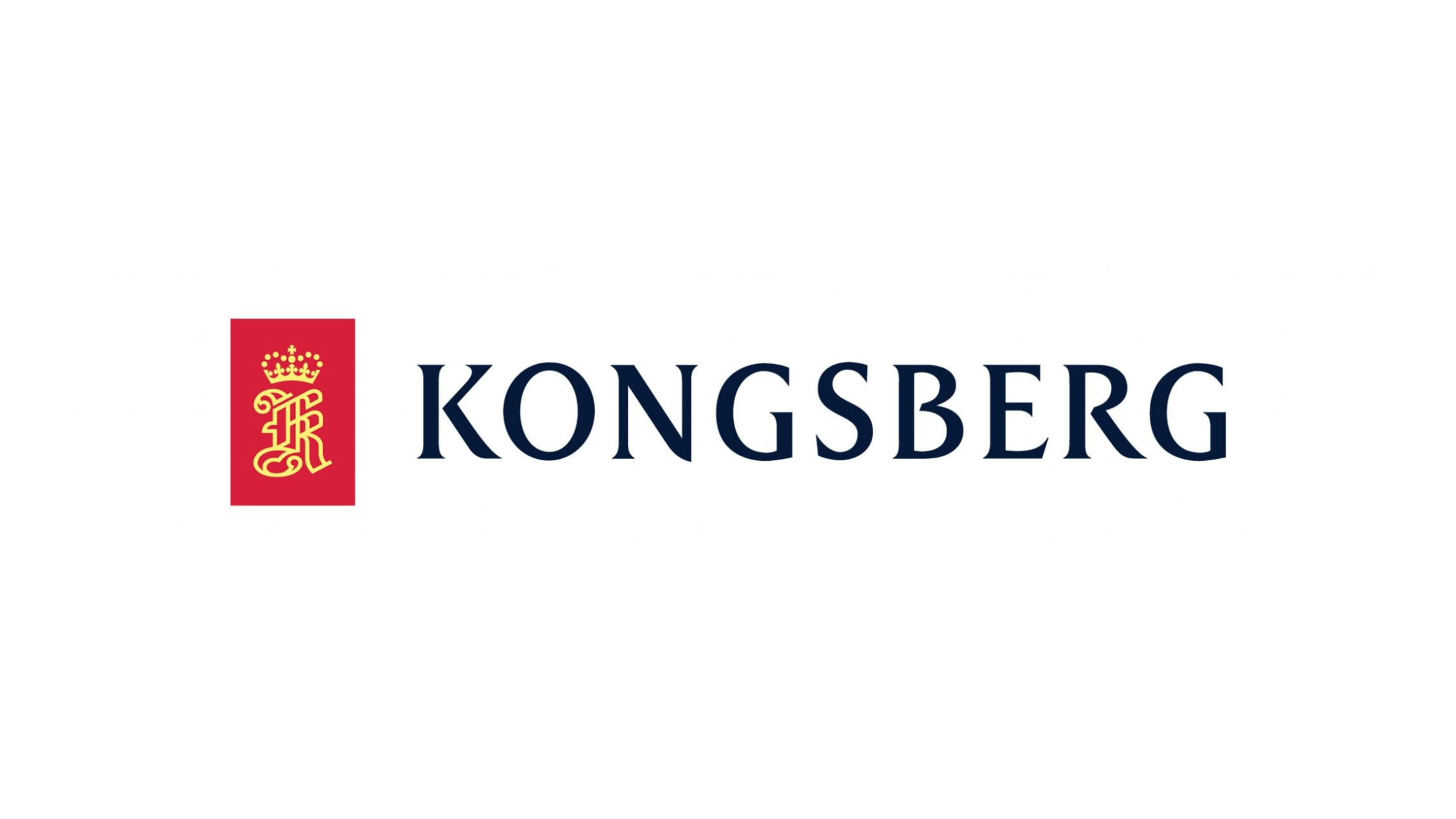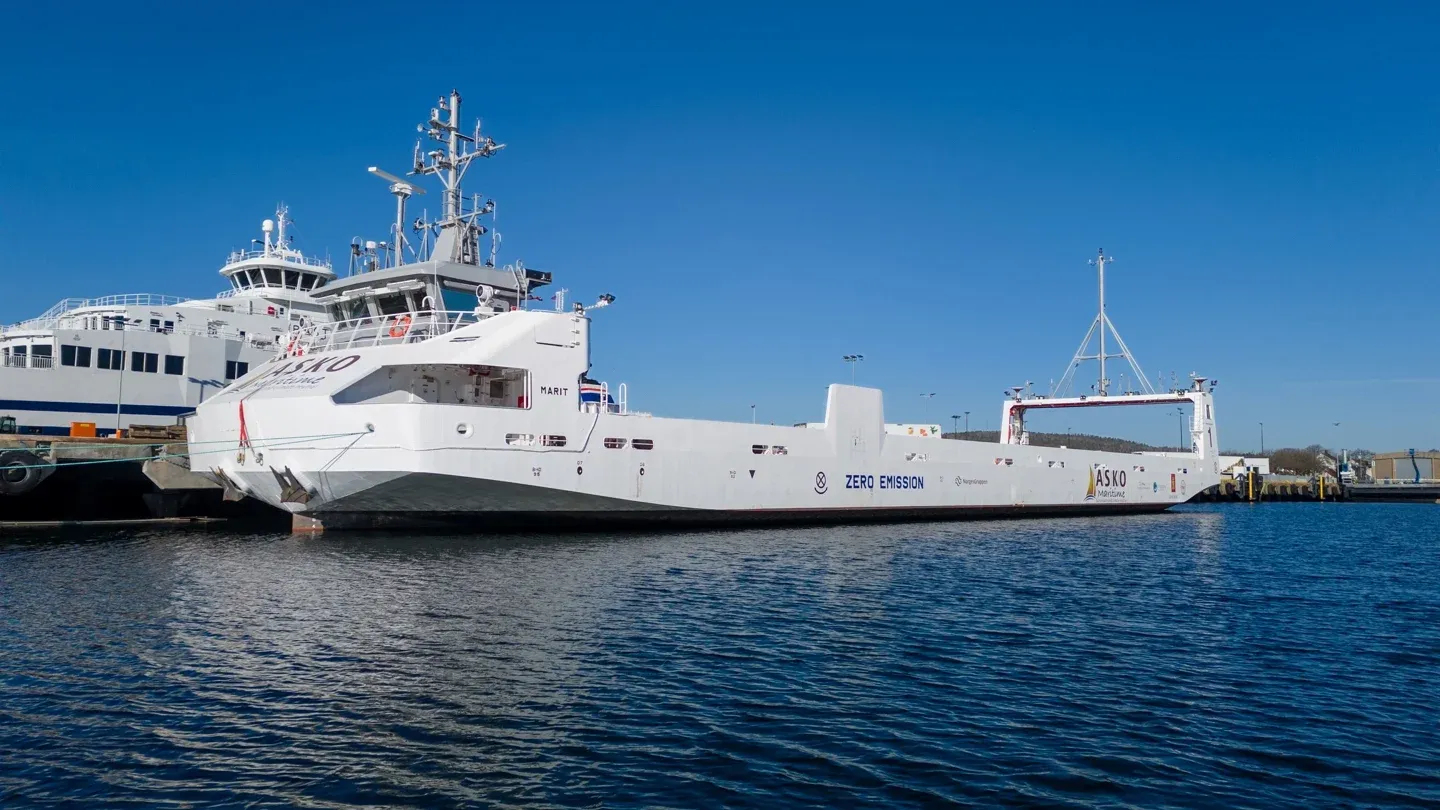The Future of Maritime Industry: Autonomous Operations and Shore-Based Control Centers

The maritime industry is on the cusp of a revolutionary transformation, driven by advancements in autonomous operations and remote control technologies.
A recent milestone in this journey is Kongsberg Maritime's Approval in Principle from classification society DNV to relocate the Chief Engineer role from onboard vessels to a shore-based Remote Operations Centre (ROC).
This development signifies a significant leap towards uncrewed vessel operations, setting the stage for a new era in maritime logistics and safety.
Kongsberg Maritime’s Breakthrough

On June 13, 2024, Kongsberg Maritime announced that it had received Approval in Principle from DNV for transferring the Chief Engineer's duties to a shore-based control center. This approval allows the Chief Engineer to monitor and control vital systems, such as the Power Management System, ballast water system, and deck machinery, from a desk-based workstation at the ROC.
Initially, this will be implemented on three pioneering vessels: the fully electric container vessel Yara Birkeland and two electric barges, Marit and Therese, operated by the Norwegian grocery retailer ASKO.
Addressing Seafarer Shortages and Enhancing Safety
One of the primary motivations behind this technological advancement is to address the growing shortage of seafarers. By moving operational oversight to shore, Kongsberg Maritime aims to reduce the strain on maritime personnel, allowing them to manage multiple vessels simultaneously from the safety and comfort of a land-based location.
This not only improves work-life balance for maritime professionals but also enhances overall safety by reducing the risks associated with long-term sea voyages.
Moreover, the ROC setup in Horten, Norway, managed by Massterly—a joint venture between Kongsberg Maritime and Wilhelmsen—will provide a centralized, aggregated view of the vessels. This allows for a more coordinated and efficient response to any issues that may arise, with the system switching to a 'high attention mode' to focus operator attention where needed.
The Path to Autonomy
The move towards shore-based control is a crucial step on the path to fully autonomous and uncrewed vessel operations. Pål André Eriksen, Senior Vice President at Kongsberg Maritime, emphasized the incremental nature of this journey.
"The role of Chief Engineer already involves significant monitoring of automation and control systems onboard. By transferring this functionality to a shore-based ROC, we can demonstrate its value and reliability before progressing to more advanced autonomous operations," he stated.
Examples of Future Impact
To better understand the future impact of these advancements, let’s consider a few scenarios:
Improved Emergency Response
Imagine a scenario where a technical fault occurs on an autonomous vessel in the middle of the ocean. With shore-based control, engineers can quickly diagnose and address the issue remotely, minimizing downtime and avoiding potential hazards.
Operational Efficiency
Consider the operational efficiency gained from managing multiple vessels from a single location. A Chief Engineer at the ROC can oversee the operations of several vessels simultaneously.
This centralisation not only reduces operational costs but also ensures that best practices and optimal performance standards are uniformly applied across the fleet.
Environmental Benefits
The adoption of fully electric and autonomous vessels significantly reduces greenhouse gas emissions. By transitioning to electric propulsion and optimizing route planning through advanced algorithms, vessels like Yara Birkeland can operate more efficiently and sustainably.
This contributes to the maritime industry's broader goals of reducing its environmental footprint and combating climate change.
Cost Savings
The shift to shore-based operations can lead to substantial cost savings. Reduced need for onboard crew means lower personnel costs, and the enhanced monitoring capabilities can lead to more efficient fuel use and maintenance procedures.
Enhanced Safety
By moving critical operations to a controlled shore-based environment, the safety of maritime operations is significantly enhanced. The ROC provides a stable and secure platform for monitoring and controlling vessel systems, reducing the risk of accidents caused by human error or adverse sea conditions.
Implications for the Maritime Industry
The implications of this development for the maritime industry are profound. Firstly, it represents a significant cost-saving opportunity for shipping companies by reducing the need for onboard personnel and enabling more efficient vessel management.
Secondly, it enhances the safety and reliability of maritime operations by centralizing control and oversight, thus allowing for quicker and more coordinated responses to emergencies.

By promoting the adoption of electric and autonomous vessels, Kongsberg Maritime is paving the way for a more sustainable future in maritime logistics.
Kongsberg Maritime’s Approval in Principle for shore-based Chief Engineer operations marks a pivotal moment in the evolution of maritime technology. As the industry continues to embrace automation and remote operations, we can expect significant advancements in efficiency, safety, and sustainability.
This move not only addresses current challenges, such as seafarer shortages and operational risks, but also sets a precedent for future innovations in autonomous maritime operations.
The maritime industry stands on the brink of a new era, where the integration of advanced technologies will redefine traditional practices and usher in a future characterized by increased automation, improved safety, and greater environmental stewardship.
Kongsberg Maritime’s pioneering efforts are a testament to the transformative potential of these innovations, promising a more resilient and forward-thinking maritime sector.
While many believe shipping has always been slow to adopt technology, a mode of transport that handles 90% of the world trade cannot stay behind for long. At MarineX, we believe that we are on the brink of a technological transformation and evolution like never before in shipping.
We hope all our readers learned a lot
Think Family, Safety First!